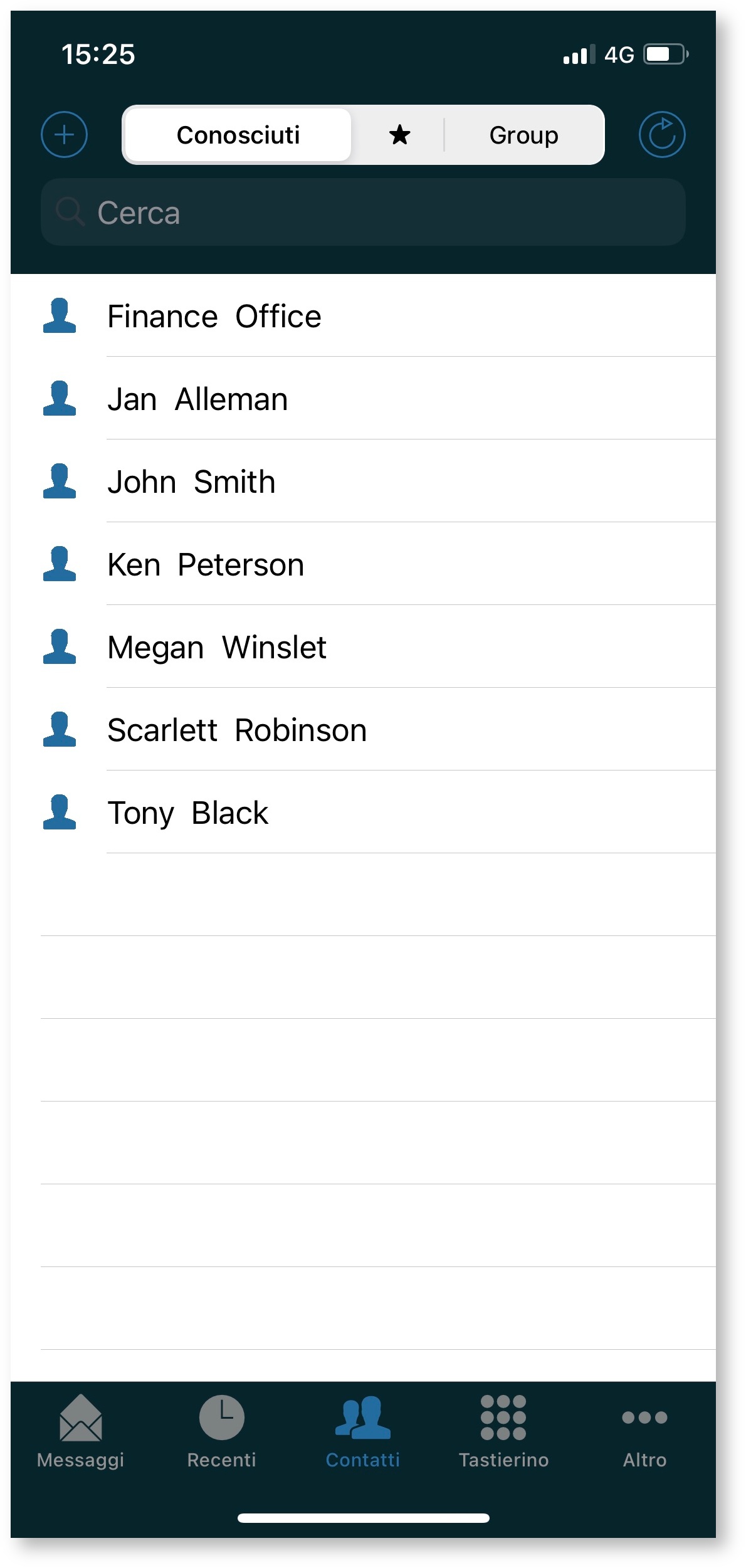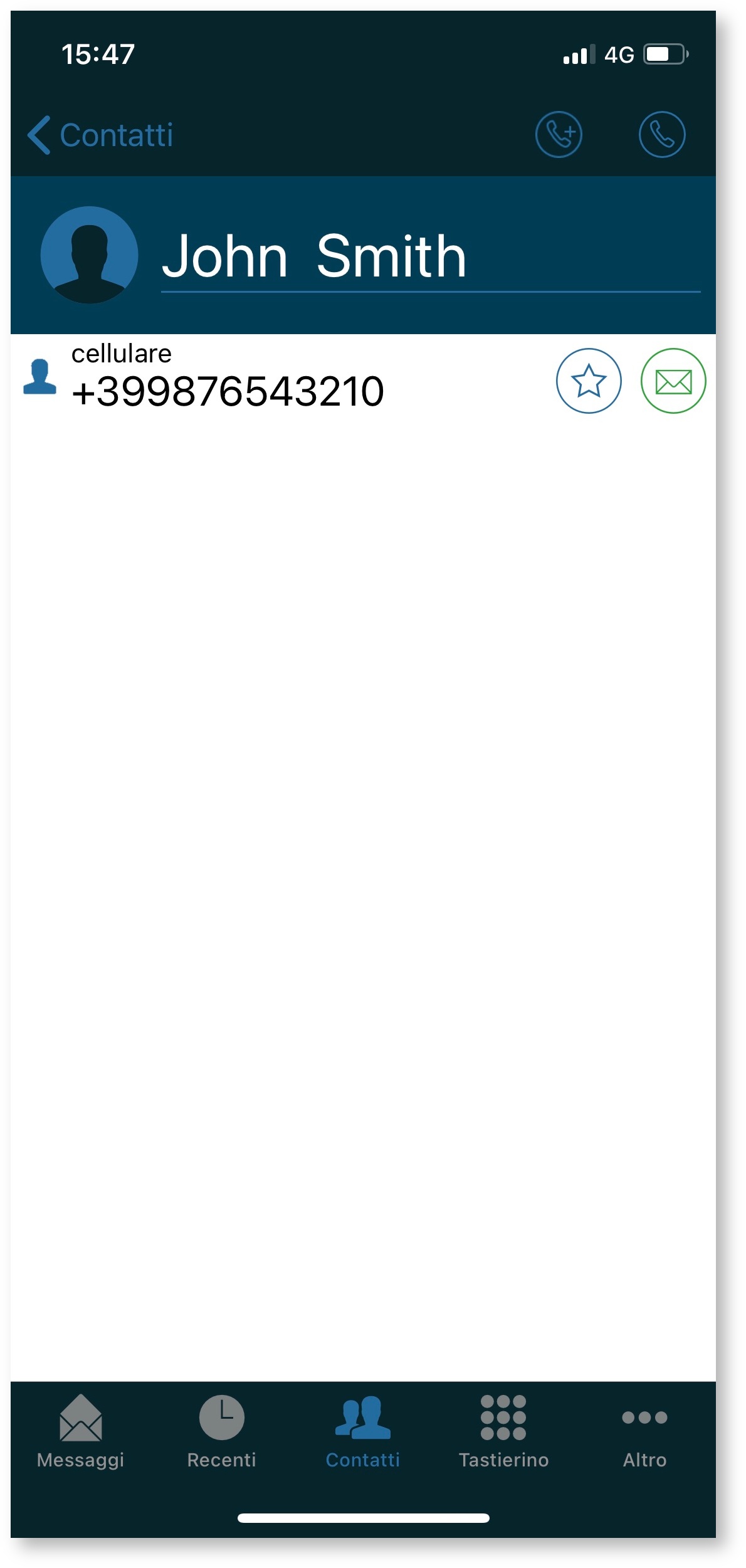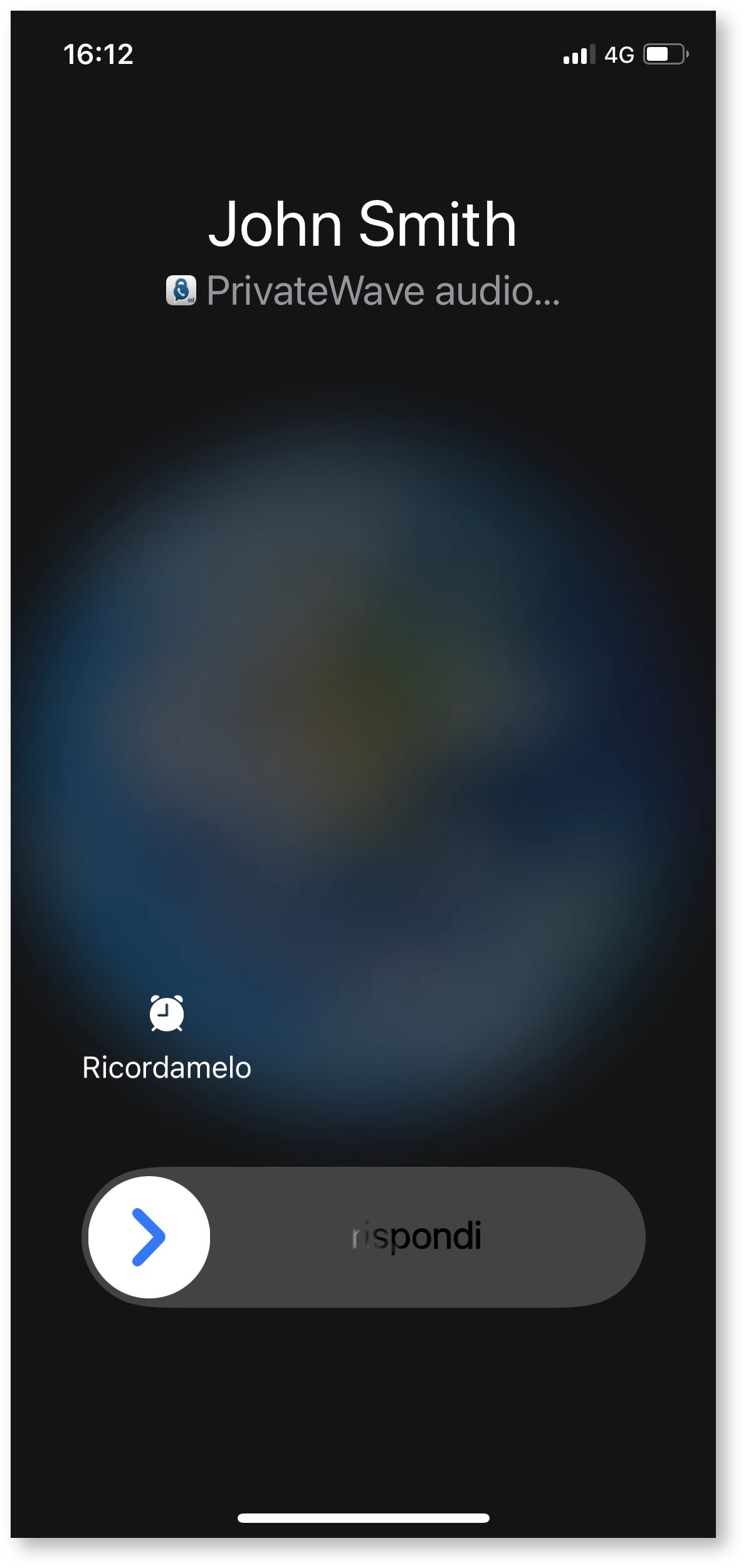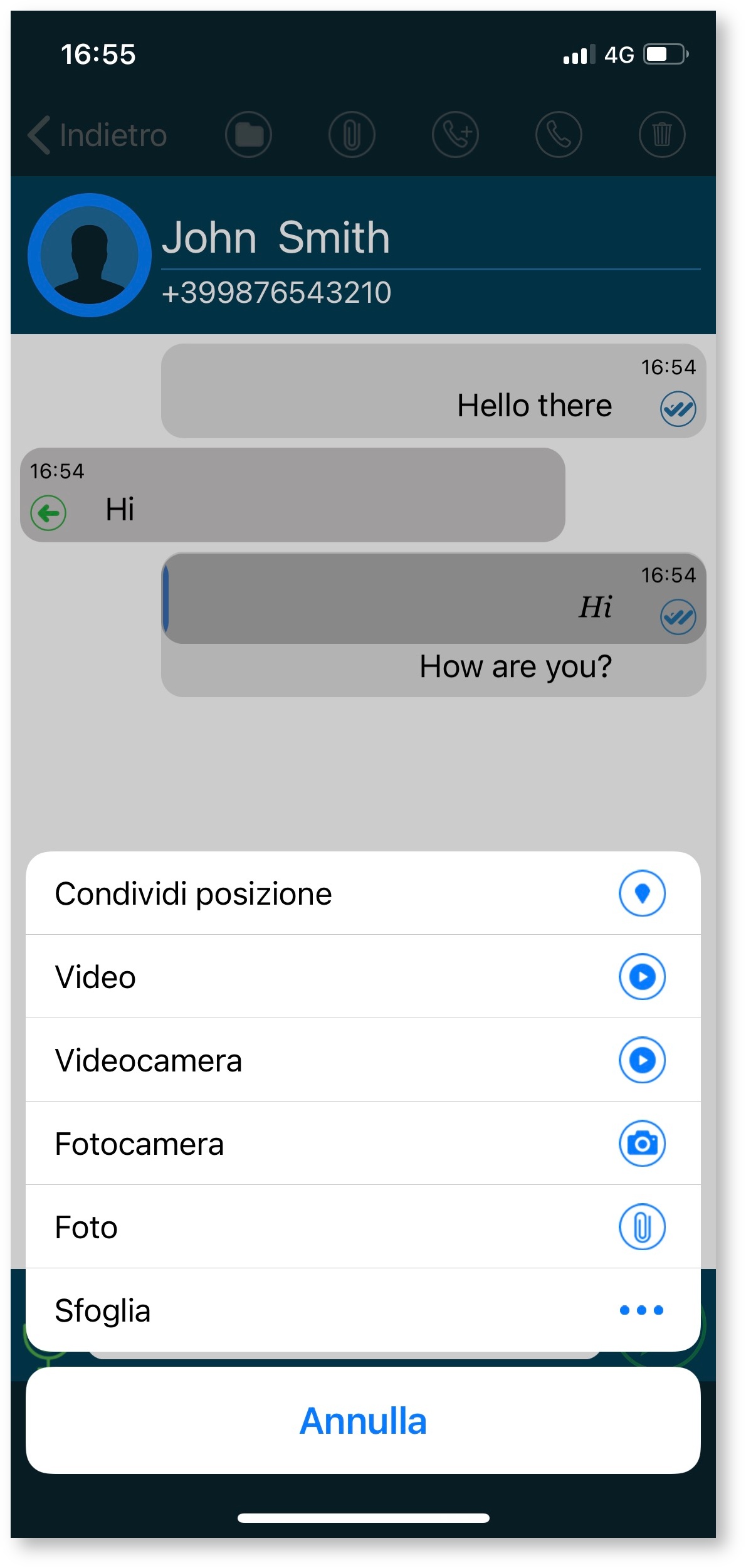This guide provides you easy step-by-step instructions to help you get started with PrivateWave .
Secure calls with PrivateWave
Calling with PrivateWave is a very easy task. You can both use your contact list or directly dial a number using the dialpad.
To make a secure call, you and the called party must have PrivateWave software running on the mobile device, be connected to the Internet and to the same PrivateServer .
Calls from the Contact list
By selecting the Contacts tab, the contacts in the device's address book that have PrivateWave installed are displayed:
Once a contact has been selected, the detail view appears and a call is automatically made by clicking on the contact's phone number:
Calls from keyboard
You can make a Secure Call by selecting the Keypad from the tab bar and then entering the number to call:
Receive Secure Calls with PrivateWave
Once PrivateWave is installed and all settings are configured correctly on the device you will be able to receive Secure Calls. When a Secure Call is incoming the native custom call screen with the PrivateWave logo is presented:
You can answer by swiping to the right as you would with a traditional call:
After the applications of the two users have exchanged and verified the security keys you can start the conversation.
Security control
A PrivateWave phone call is always encrypted. The protocol provides verbal verification of two keywords displayed at the beginning of the conversation.
If both parties see the same keywords, then the call is secured. The keywords change with each call. If the keywords are not the same between caller and callee hang up the call immediately because this may be a sign of a security attack:
After verbally verifying the keywords you can mark the contact as "reliable" by clicking on the red question mark. Verbal verification is not necessary for subsequent conversations and the keywords will be displayed in green:
In the case of calls to and from a landline telephone system, conference room or three-way call there are no keywords but only the security indicator. Buttons are also available for additional call transfer and three-way call services:
Sending Secure Messages with PrivateWave
In addition to making secure calls you can communicate with users using PrivateWave through Secure Messages end-to-end encrypted.
Sending from the "Messages" tab
If the conversation already exists in the "Messages" history, select the desired contact to start the message composer:
Otherwise select the "+" button at the top right and then choose the contact from the address book:
Sending from the "Contacts" tab
To send a message to a contact in the contact list, select it and then click on the envelope icon next to the phone number:
Reply with quotation
To reply to a message with a quote, swipe to the right of the message:
Forward
To forward a sent or received message, swipe the message to the left and press the "Forward" button that appears on the right
Then select the recipient from the list and press "Forward" at the bottom right. To cancel the forwarding press "Finish" (or "Cancel" if present)
Remote delete
To delete a message already sent, swipe the message to the left and press the "Delete remote" button that appears on the right
The message will be marked as remotely deleted in the chat
Sending attachments
To send a file press the "clip" button in the upper right corner. In the menu that appears you can choose the type of attachment you wish to send:
Once you have selected the file to send, click on the send icon at the bottom right of the attachment preview window:
After sending the file you can preview it by clicking on the "lens" icon next to the file name.
Group Chat
If the group chat already exists in the "Messages" history, select the corresponding group to start the message composer:
Otherwise it is possible to access the groups in the Contacts tab under "Groups":
To create a new group press the "New group" button at the top left of the Message tab, enter the name of the group:
and then choose the contacts to add:
You can view information about the group by pressing the "i" icon in the upper right corner of the chat itself:
The group administrator can edit the group itself by swiping the group to the left and pressing the "More" button that appears on the right
You can delete the group or change its administrator
Secure Messages status icons
An icon is displayed for each Secure Message showing its status:
| Icon | State |
|---|---|
| Sending the message | |
| Message received by the server | |
| Message delivered | |
| Message read | |
| Error while sending the message |
In the case of Group Chat a message is delivered or read only when all group members have received or read the message. You can access the detail status of each single message sent by swiping left on the message itself.




